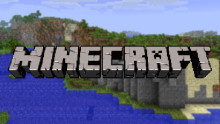Val Waldron
Posts tagged with links
Showing 11 - 20 of 68 items
•
Phil Minchin of Port Phillip Library in Australia shares his views on why games are an overlooked but important addition to libraries via a blog post on the Library Journal blog. In it, he points out a number of reasons why games should be in the collection, including that they are important elements of culture, that they foster community, and that they are art - the poetry of system.

Old Dominion University has taken the time to painstakingly recreate their library in the popular indie game Minecraft, and is currently seeking out ideas for connecting with current and potential users who play the game. According to their website, they're planning a zombie invasion on their virtual library to celebrate Halloween, and who knows what might invade them next.
•
A new game called Planet Hunters, set up by a list of organizations including the University of Oxford and Yale University, enlists the help of gamers to seek out new civilizations. Or at least discover potentially new planets, by searching through NASA Kepler public release data. According to Gamasutra's article, "Every user who helps to discover a planet is then named in the acknowledgements as part of The Royal Astronomical Society monthly notices." The official report explains more of the details.

Online gamers have used a game called FoldIt to help decipher "the structure of an enzyme of an AIDS-like virus," helping scientists to develop "new insights for the design of antiretroviral drugs. "While the enzyme had "thwarted scientists for a decade," the entire process took the online gamers only about 3 weeks to crack.
•
The organizers of the annual Classic Gaming Expo - John Hardie, Sean Kelly, and Joe Santulli - have a mission. They want to start a physical museum that collects everything about classic games - every version of every game, design & developer notes, promotional materials, backups of unreleased games, etc. The exact location is yet to be determined, but San Jose, CA is their stated goal.
•
The Hand Eye Society will be running two game incubators in Toronto over the next several months, both of which focus on making it easier for women to get involved in creating video games. The group aims to get more underrepresented groups involved in game creation, and is working to dispel certain myths about game development that prevent people from trying it out, such as the assumption that developers have to be experienced in programming and mathematics. According to their article in the Torontoist, anyone who has "completed a project in a creative medium" is eligible to participate.
•
The Supreme Court decision is out, but the issue still lingers. Many people feel strongly either way regarding the issue of whether minors should be able to buy violent video games, and their voices have carried long after the decision came out.
•
Video games have received a lot of attention lately from politicians like Obama and Gore, and their messages don't always agree. Gore was quoted at the 2011 Games for Change Festival today, praising the video game industry as a "very large, extremely significant industry with a wildly diverse and rapidly growing audience of players on all kinds of platforms," and gave several examples of games that "integrate social good and efforts to make the world a better place into games." Obama, on the other hand, though not expressly against video games, has warned people of the dangers they present in distracting kids from family time, as well as their education.
•
The Supreme Court is reportedly finishing up their assessment of an issue presented through a California court case back in November, which questions whether it should be legal to sell violent video games to minors. Video games are currently regulated via the ESRB rating system, and certain ratings may be deemed illegal to sell to people who are underage.
•
University of Michigan psychology professor Susanne M. Jaeggi was quoted today in an L.A. Times article about research published in the Proceedings of the National Academy of Sciences that explored the possibility of certain video games improving the reasoning and working memory ability of children who play them.